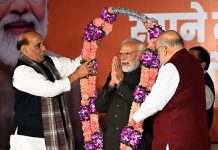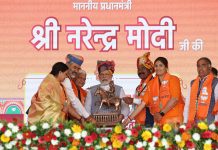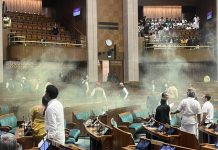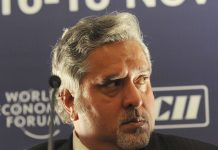Is centre changing tack on Kashmir? It looks like it is, but not quite. On March 30, in an unusual decision, the state government decided to let the top separatist trio — Syed Ali Geelani, Mirwaiz Umer Farooq and Yasin Malik – carry out their political activities but with a rider: they should not create a law and order problem nor make anti-national speeches.
A day later they were even allowed to attend and address the March 30 congregations. But a few days later, the state government again placed them under house arrest when twenty people died in three encounters in South Kashmir — thirteen of them militants, four civilians and three security personnel.
The government decision to cut separatists some slack still stands. They could still be allowed to hold their activities as long as the government doesn’t apprehend a law and order issue. And, therein lies the potential shift in the stance towards Kashmir. And if this is so, it is happening for the first time in the last four years. The NDA government has so far practised an iron-fisted policy towards the state. Soon after he was sworn in 2014, Prime Minister Narendra Modi embarked upon a no-compromise hardline approach to control the ongoing runaway upsurge in Kashmir.
But four years on, there is little that has changed in Kashmir. Militancy, which was sought to be curbed, has grown from strength to strength, despite an increasing number of the killings of the militants.
So, has the centre finally woken up to the deteriorating situation in the state and started trying some outreach, beginning with the top separatist leadership? It does appear so. And, no less than the centre’s new Kashmir interlocutor Dineshwar Sharma has indicated such a change.
“There are more decisions in offing,” Dineshwar Sharma has told the media. “You will see a change, a big change.”
However, New Delhi has so far stayed short of offering talks to the Hurriyat. Even Sharma has left it to the wisdom of the separatist leaders “to take a call” on engaging New Delhi. This has meant that the centre expects the initiative for the dialogue to be taken by the Hurriyat itself, chances of which are remote. As a result, there is little hope of an engagement between the two in the near future.
But, this hardly detracts from the significance of giving Hurriyat leaders some space to ply their politics. More so, when even the BJP has batted for such a space terming the government decisions to free separatists as part of the Confidence Building Measure (CBM).
“India is a democratic country and the separatists have a right to carry out their activities democratically,” said Ashok Kaul, the BJP’s J&K spokesperson. “But the separatists will have to carry out their activities peacefully. This has been conveyed to them.”
But such a shift when the NDA government is entering in its last year in the power means too little, too late – albeit forced possibly by the realisation that its hard-nosed policy so far has only made things further difficult in the state. In recent past, there has been mounting opinion in the state that the centre should relax its tough policy towards the state.
“Such an approach ensures that the turmoil in Kashmir will linger on,” stated a recent editorial of a local English daily. “One would expect the central government to understand the gravity of the situation and take incremental steps to address the larger political issue that is primarily responsible for the turmoil in the state.”
But, the fact that the time for such a policy shift may have already run out is also not lost on the Kashmir observers.
“This apparent policy shift makes little sense now. There is little time left for the new policy to make an impact,” says the analyst and commentator Gowher Geelani. “But if the centre is sincere and serious about a political outreach and willing to resolve issues, there is no reason it shouldn’t make a redeeming difference.”
letters@tehelka.com














